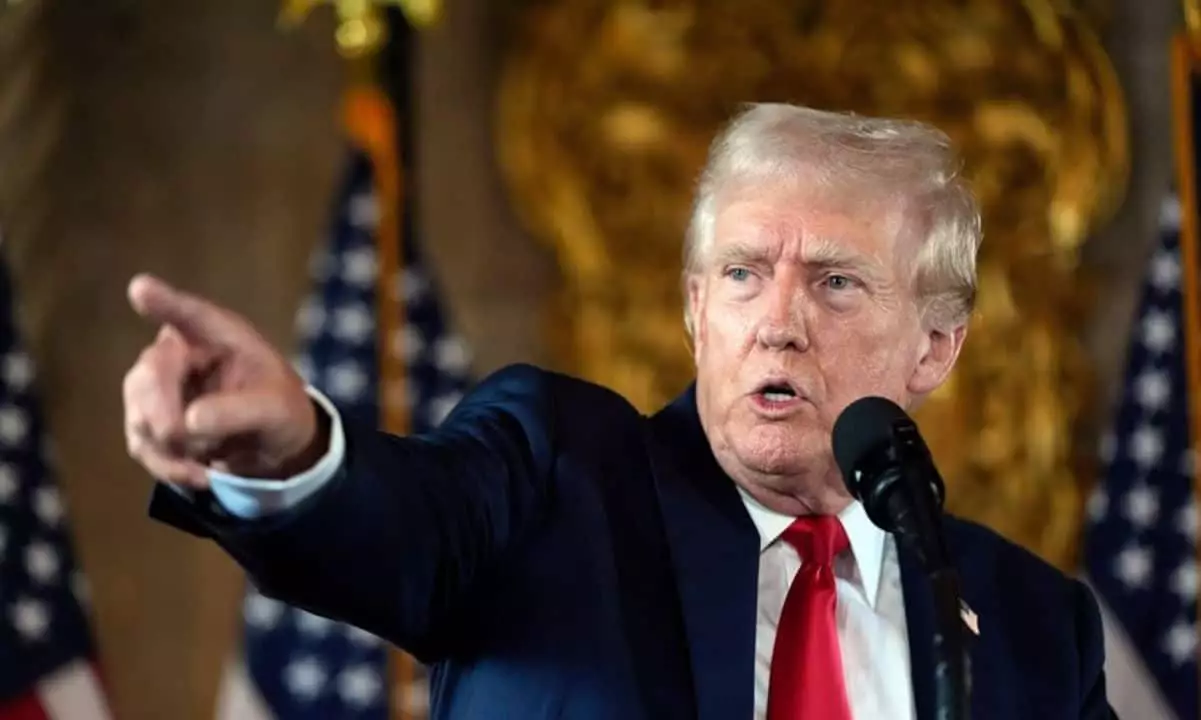The surprising crossover between cryptocurrency moguls and American politics has sparked conversations about the influence of financial power in shaping government policy. Recently revealed filings with the United States Federal Election Commission shed light on the extravagant donations made by prominent venture capitalists Marc Andreessen and Ben Horowitz to Right For America, a super PAC that staunchly supports Donald Trump. Each donated a staggering $2.5 million, a figure that illustrates not only their financial clout but also their strategic interest in pushing forward a pro-crypto agenda, which they refer to as the “little tech agenda.” As an industry that thrives on favorable regulations, the tech-savvy elite are leveraging their resources to gain political traction.
Andreessen’s additional contribution of $844,600, the maximum allowable under federal law, to both Trump’s campaign and the Republican Party, accentuates his strong alignment with conservative policies perceived as favorable to tech and cryptocurrency development. Conversely, Horowitz’s recent announcement of potential support for Vice President Kamala Harris’ campaign raised eyebrows, primarily due to her less-than-clear stance on cryptocurrency. This shift could signify an attempt to hedge bets in a politically volatile environment, showing the dynamic nature of these investors’ strategies as they navigate a complex electoral landscape.
The involvement of Chris Larsen, a co-founder of Ripple, further complicates the picture. His decision to contribute $1 million in XRP tokens to Future Forward, a PAC backing Harris, is intriguing given Ripple’s ongoing legal battles with the SEC, which began in 2020. This move may appear contradictory, yet it reflects a nuanced strategy intended to diversify support within the political arena. Other notable billionaire donors, like Miriam Adelson, who has pledged a monumental $95 million to Preserve America, illustrate the financial muscle being deployed to influence elections in favor of pro-business policies, particularly those that resonate with the burgeoning crypto market.
The increasing prominence of crypto-focused PACs underscores a conscious effort within the digital asset industry to maneuver political landscapes benefitting their interests. Reports indicate that these committees have amassed significant funds, with crypto PACs like Fairshake reporting over $200 million raised. This financial mobilization indicates a growing recognition of the pivotal role that legislative frameworks play in the crypto industry’s trajectory. In stark contrast, data from Open Secrets reveals Republican candidates outpacing Democrats in PAC donations, pointing to a strategic moment of leverage for proponents of less stringent crypto regulations.
As the 2024 election cycle heats up, the intersection of cryptocurrency and political fundraising raises critical questions regarding the ethics of monetary influence in governance. While venture capitalists and tech entrepreneurs navigate their unique interests, the evolving legislative landscape, particularly in crypto, will undoubtedly shape future policies. The actions of influential donors signal a proactive approach to securing a seat at the political table, ensuring their interests are represented in a sector rife with potential yet bound by uncertainty. Whether these strategies will yield favorable outcomes for their chosen candidates remains to be seen, but one thing is certain: the crypto landscape is becoming increasingly intertwined with the political fabric of the United States.

